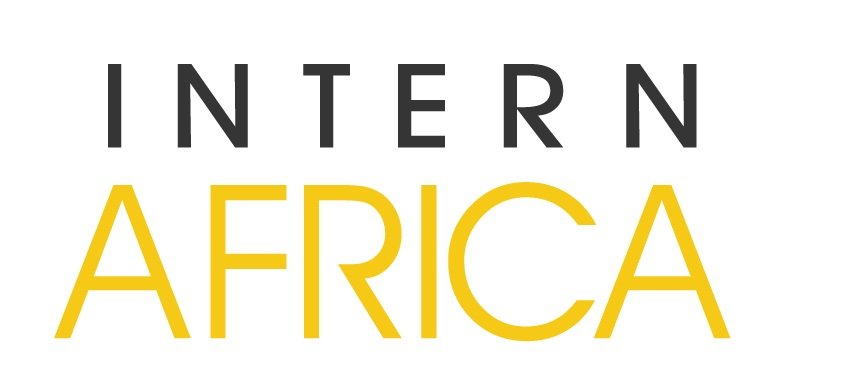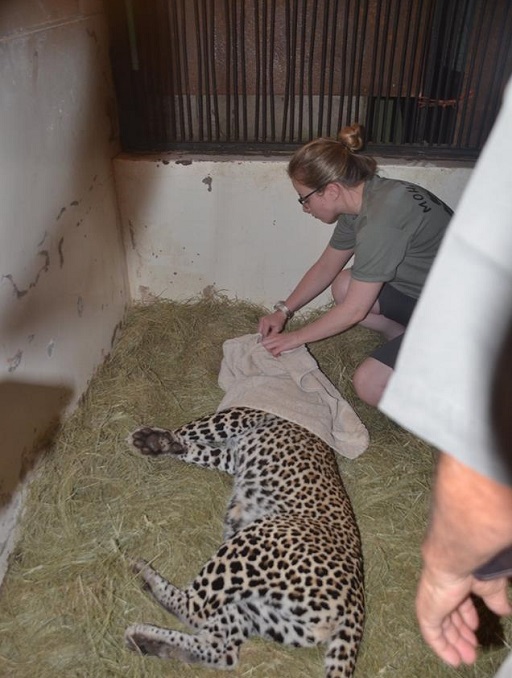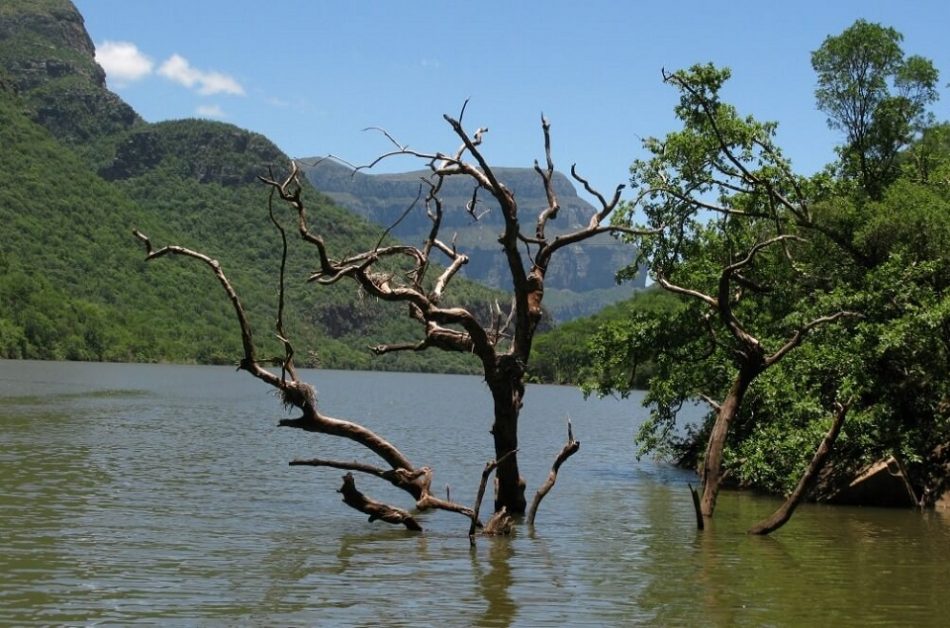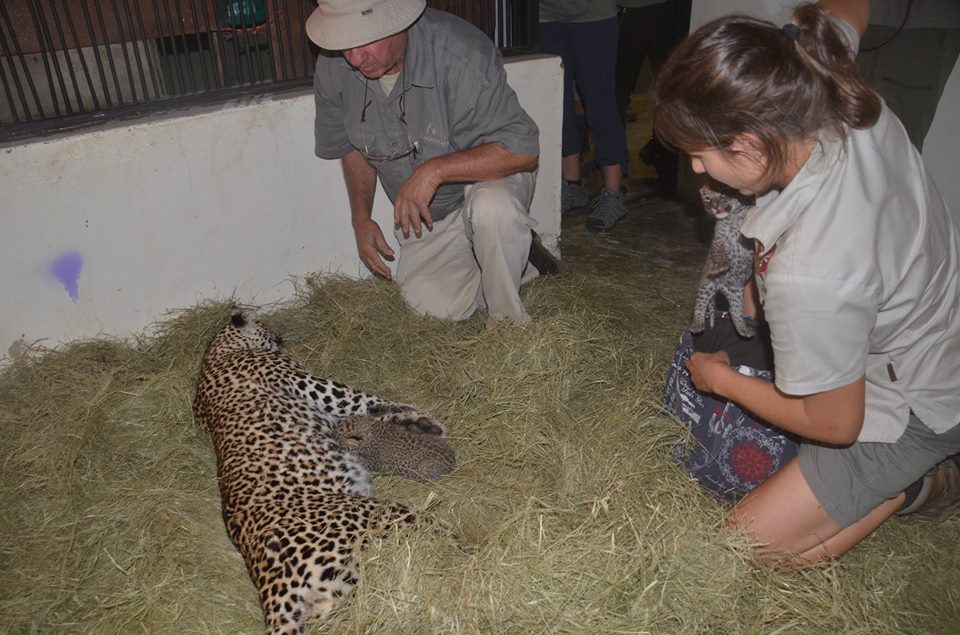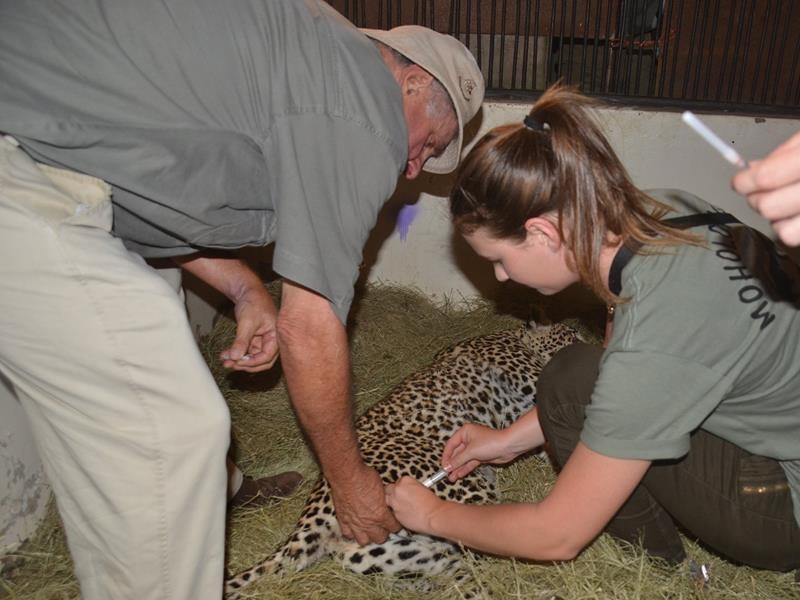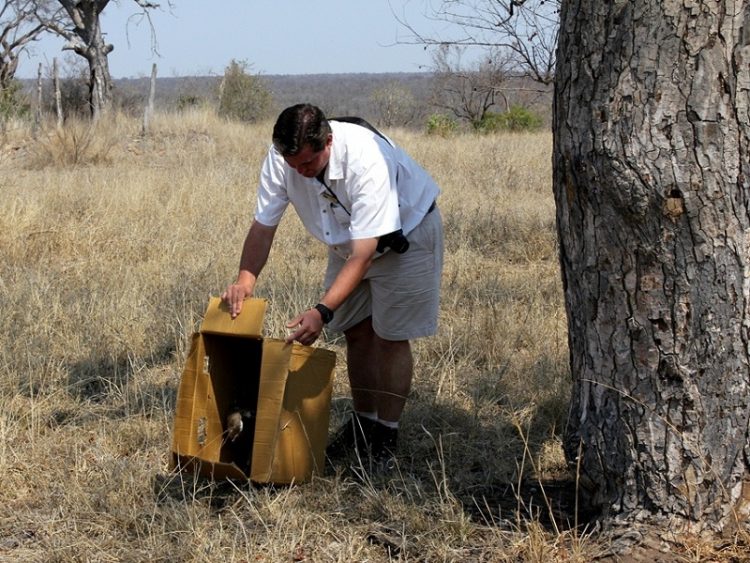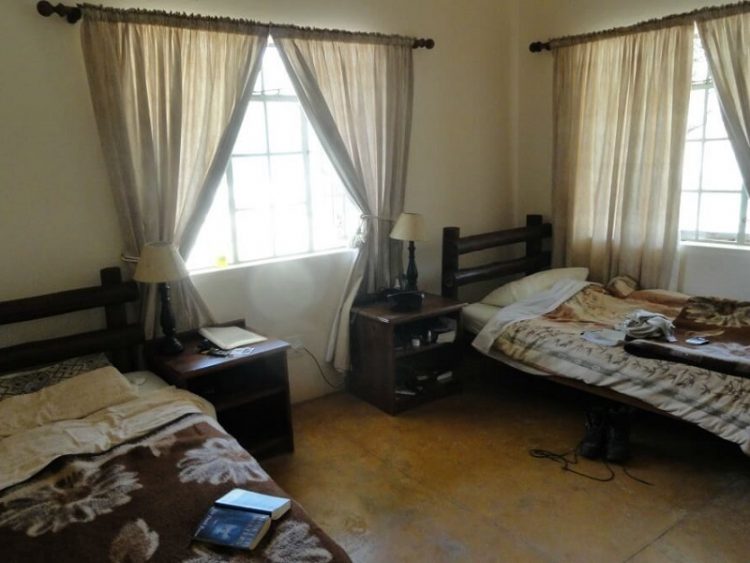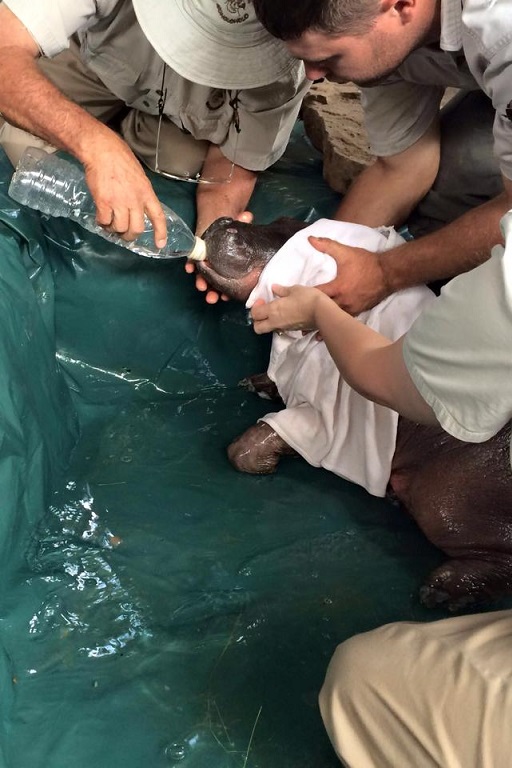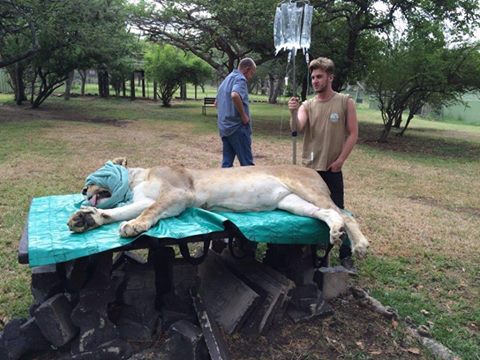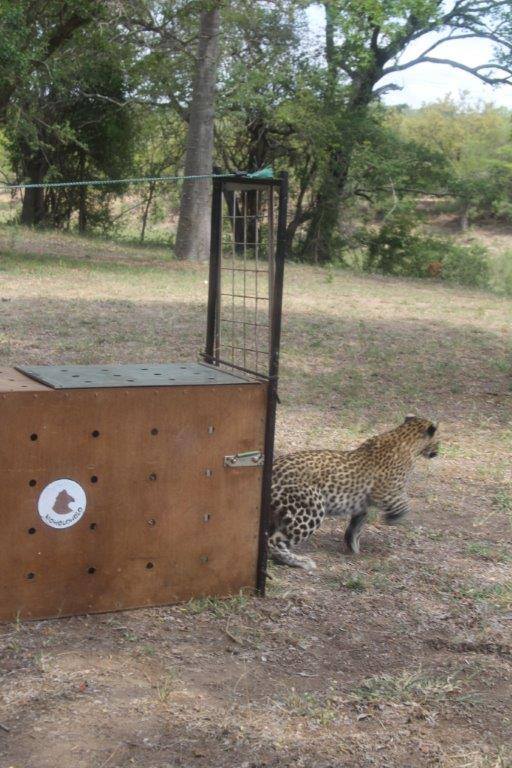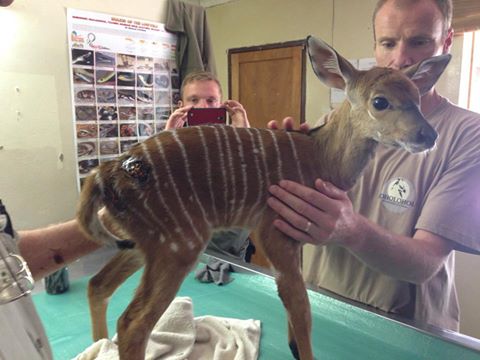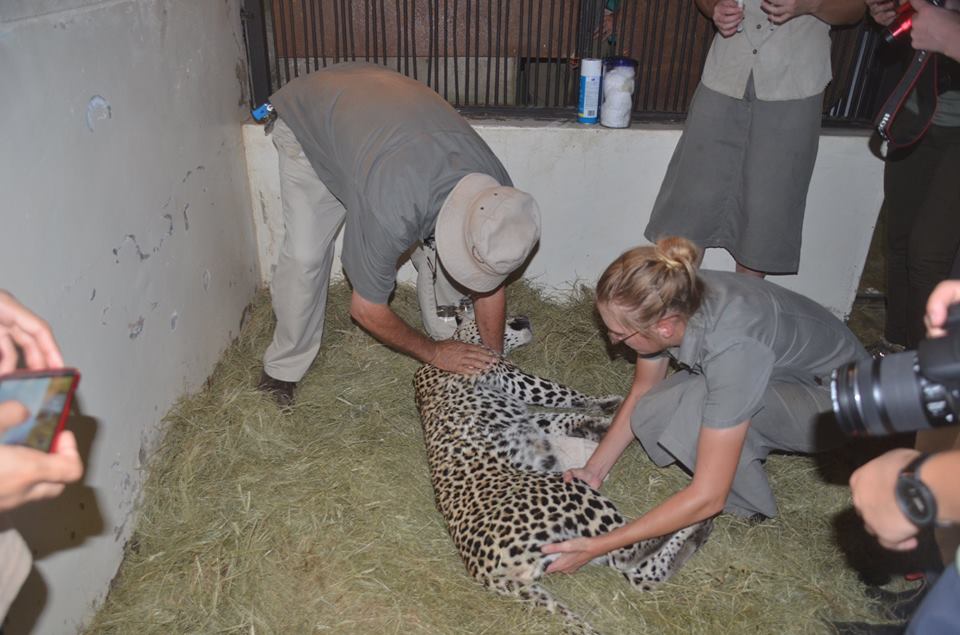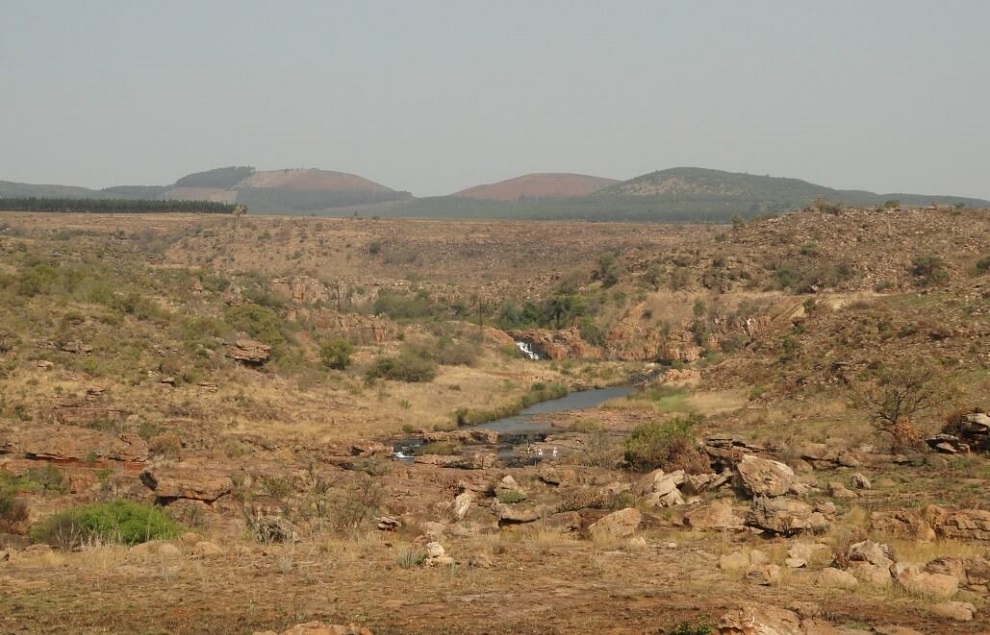South Africa
WILDLIFE REHABILITATION VOLUNTEER PROGRAM
ANIMAL CONSERVATION VOLUNTEERING
Looking for animal conservation volunteering? Look no further! Serving as a safe haven for those animals orphaned or injured to the point of not being able to return to wild successfully, Moholoholo has become home to over one hundred resident animals. Their natively African residents range from leopard, lion, honey badger, serval, and hyena, to wild dogs, eagles, and even vultures. The sad extent of these animals injuries, coupled with extensive habitat loss, have allowed these magnificent creatures to become ambassadors for their species, further prompting their protection, and helping us to gain a deeper understanding of these unique and amazing animals.
As a volunteer, you will gain hands-on experience in working with animals and will learn about African endangered wildlife. Since the volunteer programs inception in 2001, volunteers from all over the globe have congregated at the rehabilitation centre for their unforgettable African experience.
As a volunteer you will be involved in a whole host of duties and responsibilities regarding the centre and its animal care. You will be involved in call out rescue operations, as well as release projects. You might even get the chance to release some of the animals yourself. In addition to that, you will have the opportunity to closely observe our clinical team during their nursing treatment procedures, and more complex cases may give you the chance to consult with a veterinary surgeon.
As a volunteer, you will gain hands-on experience in working with animals and will learn about African endangered wildlife. Since the volunteer programs inception in 2001, volunteers from all over the globe have congregated at the rehabilitation centre for their unforgettable African experience.
As a volunteer you will be involved in a whole host of duties and responsibilities regarding the centre and its animal care. You will be involved in call out rescue operations, as well as release projects. You might even get the chance to release some of the animals yourself. In addition to that, you will have the opportunity to closely observe our clinical team during their nursing treatment procedures, and more complex cases may give you the chance to consult with a veterinary surgeon.
- Age: min. 18
- Location: Hoedspruit area
- NB: You will be working 7 days a week
- Requirements: 18 years, good physical fitness, flexible
- Group size: max 20 participants
- Project duration: 1 week - 8 weeks
- Laundry: Free laundry service for your everyday clothes, but you are requested to wash your underwear and delicate items by hand or use the washing machine provided in the common room.
- WIFI: WIFI is available for R10 per hour
- Linen/towels: You will be provided with bed linen, however you are expected to bring your own personal toiletries and towels .
Location
The wildlife rehab is located near Hoedspruit
Requirements
The minimum age is 18 years old. There is no restriction in terms of max. age. Being fit and able to work are the main requirements due to the nature of the programme.
Activities
As a volunteer, you will gain hands-on experience in working with animals and will learn about African endangered wildlife and will be involved in a whole host of duties and responsibilities regarding the centre and its animal care.
A volunteers’ day-to-day tasks at the centre are the most important. It is of the utmost importance to keep in mind that the animals come first, and we are here for them. A love for animals and a passion for their well-being, as well as some dirty hands, is all that is needed to participate in the volunteer project. Dedication and team work similarly play key roles in the running and proper functioning of the facility.
No average day at the centre is the same, and anything and everything can happen. The long unsociable hours, manual labour, physical fitness and a little stamina are needed, for you to gain the most out of your time with the animals. The cleaning of enclosures and preparing the animals food are all aspects of the total animal care that you will be providing. You can take part in the daily feeding of a variety of orphaned and permanently housed animals (this depends entirely on the animals at the centre at the time).
Working with and caring for animals is by no means an easy job, and are often the cause of the best laid plans going aria. Anything can happen, and losing a meal and some sleep is all part and parcel of this enriching African experience.
Baby season
Baby season at Moholoholo is a crazy, busy and wonderfully rewarding time, and although no babies are ever guaranteed at the centre, Mother Nature is incredibly unpredictable. Baby season at the centre starts in early November and runs through to the end of February. Some seasons are less predictable than others, however the centre has seen an influx of orphans later in the season over the years past. Babies can be admitted to the centre at any time, and as a volunteer, you may be asked to help in caring for the orphaned babies. Volunteers fortunate enough to be selected for this task will be fully backed and supported by the centre’s clinical team. Even though there are top-class care and facilities on offer for the animals at Moholoholo, young animals are better off remaining with their parents in the wild. Admitting a baby animal to the rehab centre is viewed only as a last resort.
Upon your arrival, you will be placed into one of the four groups, each responsible for the daily care of a number of resident animals. Food preparation, enrichment, cleaning of the enclosures, and visual health checks, are all part of the daily duties that volunteers will be performing. Recognising changes in animals’ behaviours and patterns will become the norm for you over some time. Keep in mind that times may change according to the animals and the centres’ needs, but your typical day will be structured.
An average day
(Earlier starts may be required and times can alter depending on your duties and the needs of the rehab)
7am – Morning Rounds
A visual inspection of the animal’s enclosure and their behaviours, as well as their general health
8am – Clinic Clean
Cleaning of the clinic, as health and hygiene are of paramount importance at the centre
8:30am – Breakfast
A walk up to the Forest Camp for a breakfast that is provided
9:30am – Morning Meeting
A discussion of the days’ tasks and job allocations, updates are given regarding the resident animals, as well as any other matters that need to be discussed
10am – Big Jobs
The predator camps are cleaned and food is prepared for the evening rounds, all done under the direct supervision of the centres’ staff
12:30pm – Lunch
A buffet lunch is served to volunteers in the common room. Volunteers are required to clean up after themselves.
2pm – Big Jobs Continued
Unfinished jobs are completed at the clinic. Once all tasks have been completed, volunteers can provide attention and enrichment for the resident animals at the centre.
4pm – Afternoon Rounds
Volunteers feed their designated animals and clean their enclosures
5:30pm – Clinic Clean
Cleaning and disinfecting of the clinic in preparation for any night time emergencies
7pm – Dinner
Volunteers are driven to the Forest Camp for a hot meal
Accommodation & meals
Accommodation and volunteer amenities are situated within the rehab grounds.Volunteers are housed in dormitory style rooms of between two and four beds. Females and males have separate accommodation. Married couples will have the option to request a two bed unit if available. All female accommodation has en-suite bathroom facilities and ceiling fans. The male dormitory has a fully equipped ablution block situated next door. Housekeeping staff will regularly clean rooms and living areas. You will be provided with bed linen, however we expect you to bring your own personal toiletries and towels. We do not provide mosquito nets but should you wish to bring your own, hooks are available above each bed. An open plan kitchen / dining area is available for communal use.
The laundry will take care of your clothes (except underwear which is to be hand washed by yourself; washing powder is provided) or you may use the washing machine provided.
Meals
You will be provided with breakfast, lunch and dinner; these meals are included in the cost of your placement and are served in a buffet style form. Please let us know when booking if you have any dietary requirements.
On a Wednesday dinner is provided by our sister park, Ya Mati which is a short drive from the rehab. This meal does not incur any extra charges but volunteers often take some extra Rand for a milkshake or cool drink.
On Thursdays you will have the opportunity to relax and unwind by visiting a local restaurant however this is at the expense of the volunteer. For those who do not wish to go, dinner will be provided as normal at the rehab.
The wildlife rehab is located near Hoedspruit
Requirements
The minimum age is 18 years old. There is no restriction in terms of max. age. Being fit and able to work are the main requirements due to the nature of the programme.
Activities
As a volunteer, you will gain hands-on experience in working with animals and will learn about African endangered wildlife and will be involved in a whole host of duties and responsibilities regarding the centre and its animal care.
A volunteers’ day-to-day tasks at the centre are the most important. It is of the utmost importance to keep in mind that the animals come first, and we are here for them. A love for animals and a passion for their well-being, as well as some dirty hands, is all that is needed to participate in the volunteer project. Dedication and team work similarly play key roles in the running and proper functioning of the facility.
No average day at the centre is the same, and anything and everything can happen. The long unsociable hours, manual labour, physical fitness and a little stamina are needed, for you to gain the most out of your time with the animals. The cleaning of enclosures and preparing the animals food are all aspects of the total animal care that you will be providing. You can take part in the daily feeding of a variety of orphaned and permanently housed animals (this depends entirely on the animals at the centre at the time).
Working with and caring for animals is by no means an easy job, and are often the cause of the best laid plans going aria. Anything can happen, and losing a meal and some sleep is all part and parcel of this enriching African experience.
Baby season
Baby season at Moholoholo is a crazy, busy and wonderfully rewarding time, and although no babies are ever guaranteed at the centre, Mother Nature is incredibly unpredictable. Baby season at the centre starts in early November and runs through to the end of February. Some seasons are less predictable than others, however the centre has seen an influx of orphans later in the season over the years past. Babies can be admitted to the centre at any time, and as a volunteer, you may be asked to help in caring for the orphaned babies. Volunteers fortunate enough to be selected for this task will be fully backed and supported by the centre’s clinical team. Even though there are top-class care and facilities on offer for the animals at Moholoholo, young animals are better off remaining with their parents in the wild. Admitting a baby animal to the rehab centre is viewed only as a last resort.
Upon your arrival, you will be placed into one of the four groups, each responsible for the daily care of a number of resident animals. Food preparation, enrichment, cleaning of the enclosures, and visual health checks, are all part of the daily duties that volunteers will be performing. Recognising changes in animals’ behaviours and patterns will become the norm for you over some time. Keep in mind that times may change according to the animals and the centres’ needs, but your typical day will be structured.
An average day
(Earlier starts may be required and times can alter depending on your duties and the needs of the rehab)
7am – Morning Rounds
A visual inspection of the animal’s enclosure and their behaviours, as well as their general health
8am – Clinic Clean
Cleaning of the clinic, as health and hygiene are of paramount importance at the centre
8:30am – Breakfast
A walk up to the Forest Camp for a breakfast that is provided
9:30am – Morning Meeting
A discussion of the days’ tasks and job allocations, updates are given regarding the resident animals, as well as any other matters that need to be discussed
10am – Big Jobs
The predator camps are cleaned and food is prepared for the evening rounds, all done under the direct supervision of the centres’ staff
12:30pm – Lunch
A buffet lunch is served to volunteers in the common room. Volunteers are required to clean up after themselves.
2pm – Big Jobs Continued
Unfinished jobs are completed at the clinic. Once all tasks have been completed, volunteers can provide attention and enrichment for the resident animals at the centre.
4pm – Afternoon Rounds
Volunteers feed their designated animals and clean their enclosures
5:30pm – Clinic Clean
Cleaning and disinfecting of the clinic in preparation for any night time emergencies
7pm – Dinner
Volunteers are driven to the Forest Camp for a hot meal
Accommodation & meals
Accommodation and volunteer amenities are situated within the rehab grounds.Volunteers are housed in dormitory style rooms of between two and four beds. Females and males have separate accommodation. Married couples will have the option to request a two bed unit if available. All female accommodation has en-suite bathroom facilities and ceiling fans. The male dormitory has a fully equipped ablution block situated next door. Housekeeping staff will regularly clean rooms and living areas. You will be provided with bed linen, however we expect you to bring your own personal toiletries and towels. We do not provide mosquito nets but should you wish to bring your own, hooks are available above each bed. An open plan kitchen / dining area is available for communal use.
The laundry will take care of your clothes (except underwear which is to be hand washed by yourself; washing powder is provided) or you may use the washing machine provided.
Meals
You will be provided with breakfast, lunch and dinner; these meals are included in the cost of your placement and are served in a buffet style form. Please let us know when booking if you have any dietary requirements.
On a Wednesday dinner is provided by our sister park, Ya Mati which is a short drive from the rehab. This meal does not incur any extra charges but volunteers often take some extra Rand for a milkshake or cool drink.
On Thursdays you will have the opportunity to relax and unwind by visiting a local restaurant however this is at the expense of the volunteer. For those who do not wish to go, dinner will be provided as normal at the rehab.
Dates
Very flexible! You can start at any given day of the week (except for Sunday)
Rates
Rates includes
Very flexible! You can start at any given day of the week (except for Sunday)
Rates
| Duration | Fee |
|---|---|
| 2 weeks | 25060 ZAR |
| 3 weeks | 37590 ZAR |
| 4 weeks | 50120 ZAR |
- Pre-departure information/advice on flights, visa, vaccinations, travel insurance by Intern Africa
- Shared accommodation
- 3 meals
- Laundry
- Pick up/drop off Hoedspruit - project
- Town trips
- Flights/transfers to Hoedspruit
- Visa fees (if required)
- Beverages
- Travel Insurance
